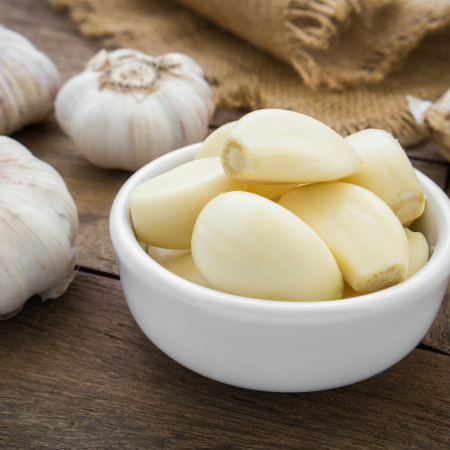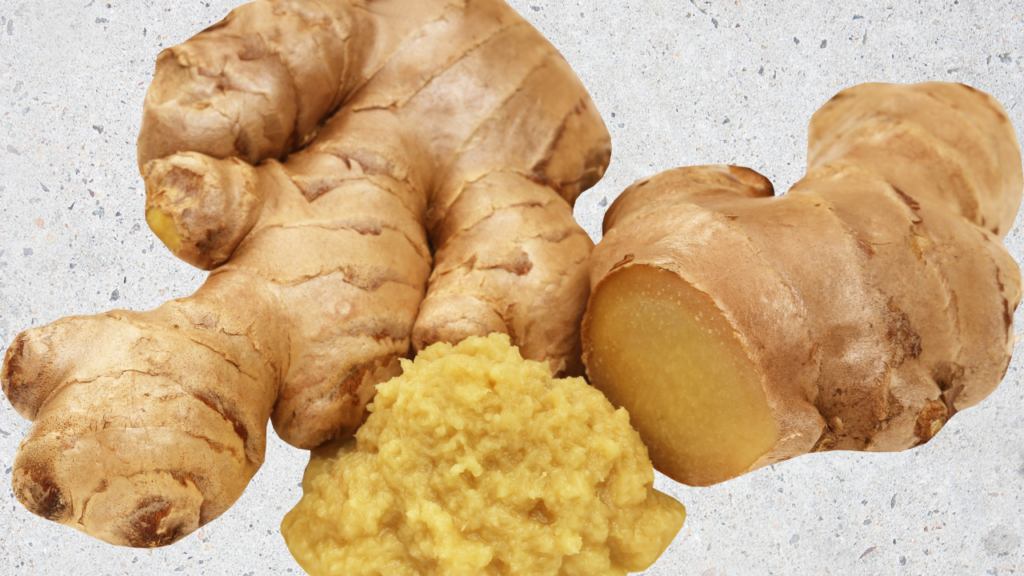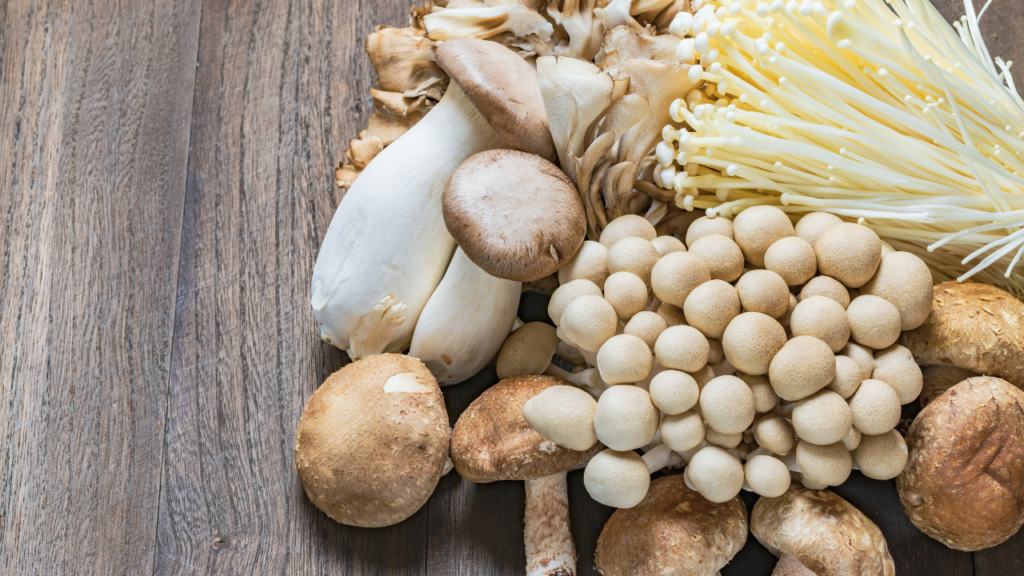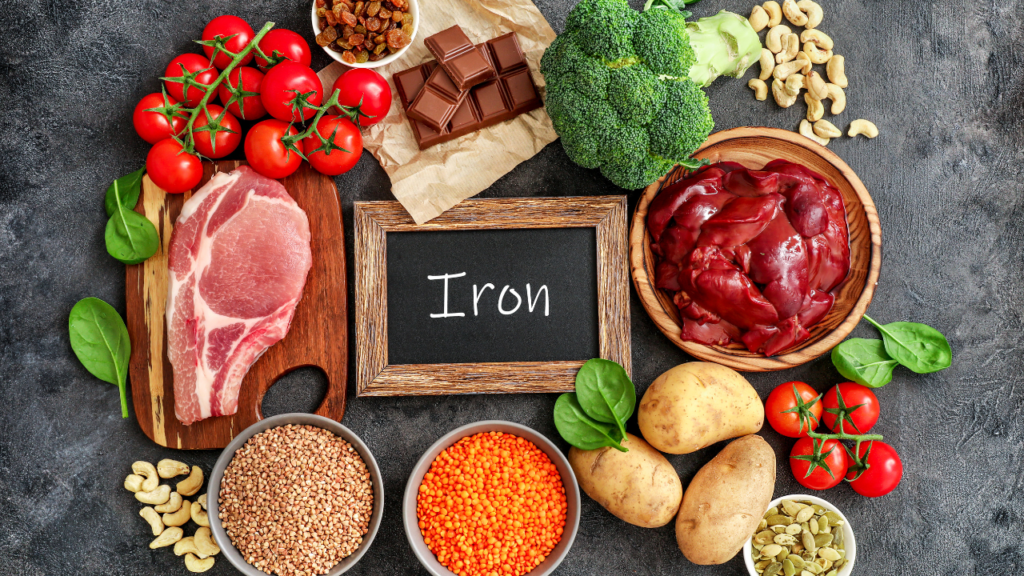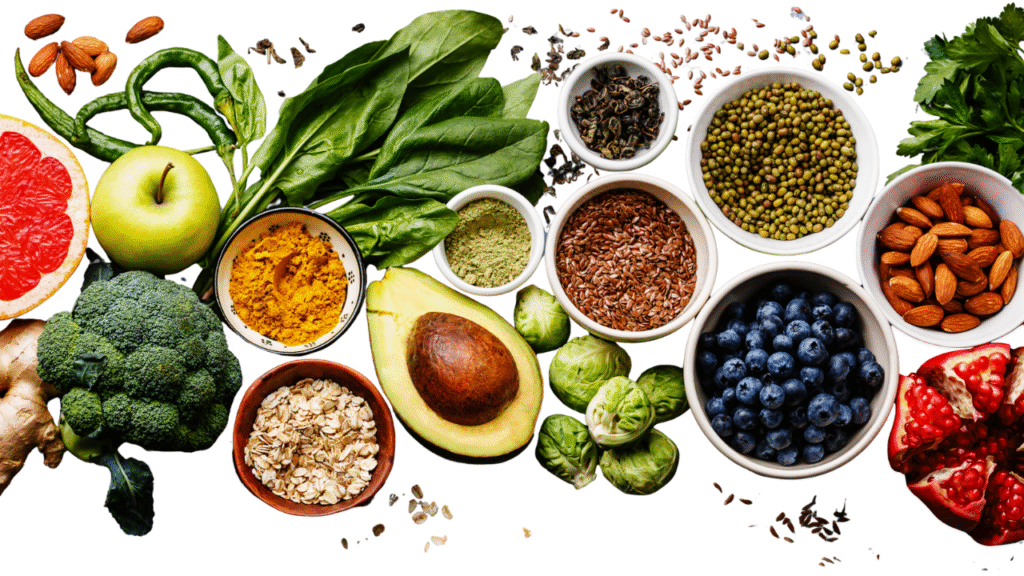Plant-based foods focus on plants, including vegetables, fruits, whole grains, legumes, seeds, and nuts, which should make up most of your food and minimize processed ingredients and animal products.
The proper function of the body’s immune system depends on hundreds of factors. One key aspect we can control is our diet, which we can focus on by eating a nourishing plant-based diet full of antioxidants and vitamins.
That said, eating a balanced and nutritionally complete diet can help ensure your immune system is good.
The key is to consume whole, nutrient-dense foods consistently. An overall healthy dietary pattern containing all the calories, protein, and essential nutrients your body needs will significantly impact ongoing, long-term support for your immune system.
Here is a plant-based list of foods that Support a Healthy Immune System
1. Citrus Fruits (Oranges, Lemons, Grapefruits)
They contain high levels of vitamin C, flavonoids, potassium, and fiber. Their antioxidant, anti-inflammatory, and immune-boosting properties have been associated with health benefits, like protection from heart and brain disease, cancer, kidney stones, and reducing the length of a cold.
Citrus fruits are also packed with flavonoids, a plant-based nutrient (phytonutrients). Flavonoids provide many benefits, including anti-inflammatory and antioxidant properties and the ability to prevent cell mutation and regulate cell function.
Most people are familiar with drinking citrus juice to strengthen the immune system and ward off colds.
Citrus Fruit Allergies
Some people are allergic to citrus fruit. While uncommon, citrus allergies are possible. Citrus allergy symptoms are the same as others and may include itching skin or mouth, runny nose, and sneezing.
Too much intake can lead to acid reflux or heartburn in some people due to their high acidity.
2. Dark Leafy Greens
Eating green leafy vegetables is probably one of the most consistent pieces of nutritional advice many people encounter throughout their lives—and for good reason. Green vegetables have countless benefits, including immune support.
Leafy green vegetables are a rich source of several immune-supportive nutrients, including vitamin C, folate, and iron.
Many of them also contain unique compounds shown in preclinical experiments to stimulate the activity of specific types of immune cells in the skin and digestive tract (1).
Kale, spinach, cabbage, collard greens, arugula, beet greens, and red-leaf lettuce are all excellent options for boosting your intake of leafy green veggies.
How to Use: add finely chopped spinach or kale to soups, stews, pasta sauces, or gently steamed collard green leaves as a sandwich wrap. You can also use finely chopped greens to add bulk to grain bowls and smoothies.
3. Broccoli
Most people recognize vitamin C as a nutrient associated with immune health, and broccoli is among the richest whole food sources. Just one cup of cooked broccoli contains more than 100% of your daily vitamin C needs (2).
Broccoli also contains many bioactive compounds with antioxidant and anti-inflammatory effects, which may reduce the risk of developing certain diseases (3).
Chop broccoli and add it to stir-fries and stews, shred it to make a raw broccoli slaw or broccoli rice, roast it, or serve it as a stand-alone side dish.
Add broccoli to your menu if you’re trying to boost your intake of immune-friendly nutrients.
If you don’t like broccoli, you can opt for other vitamin C- and antioxidant-rich foods such as cauliflower and cantaloupe.
4. Hemp Hearts
Hemp hearts, or hemp seeds, can support immune health in several ways.
For starters, hemp hearts are a complete source of plant-based protein. Protein is the building block of your immune cells, so getting enough of this macronutrient is critical for healthy immune function (6).
Hemp hearts are also a rich source of omega-3 fats. Omega-3s have anti-inflammatory properties, and early research suggests they may help regulate the function and communication of certain types of immune cells (7).
Hemp hearts have a mild, mostly neutral flavor so that you can add them to almost anything. Mix them into granola, smoothies, and salad dressings. Or try baking them into a homemade batch of muffins, waffles, or cookies.
If you don’t like or don’t want to eat hemp hearts, you can also obtain some plant-based omega-3s and protein from chia seeds, flax meal, and walnuts.
5. Lentils
Lentils are an excellent source of various immune-supportive nutrients, including protein, vitamin B6, iron, folate, selenium, and zinc (8).
Lentils—and other types of legumes—are among the richest natural sources of fiber. One cup of cooked lentils provides about 15 grams of fiber or 40-60% of the daily fiber recommendation (8).
Fiber is a type of carbohydrate humans cannot fully digest. However, certain types function as prebiotics, supporting the health and growth of beneficial bacteria in the digestive tract (9).
Maintaining a thriving community of healthy gut bacteria is critical for supporting proper immune function. These bacteria work to mediate inflammation and reduce the ability of harmful or pathogenic bacteria to grow and make you sick (10).
Lentils are affordable and easy to prepare compared to many other types of dry beans.
Add lentils to your favorite soups and stews, or use them as a base for a pasta sauce. They also make an excellent foundation for plant-based sloppy joes, meatballs, or shepherd’s pie.
If you don’t like lentils, you can obtain similar nutritional benefits from other legumes such as black beans, kidney beans, garbanzo beans, and pinto beans. Whole grains, vegetables, and fruit are great options for ensuring enough fiber.
6. Garlic
Garlic contains allicin, a sulfur compound with potent antimicrobial and immune-boosting properties.
Garlic has long been used for its pharmacological potential in traditional herbal medicine practices worldwide. Historical uses include treating heart disease, respiratory illnesses, parasites, snake and insect bites, constipation, and bacterial and fungal infections (13).
Modern research suggests that the reason behind garlic’s apparent therapeutic potential is likely due to its rich supply of antioxidants and sulfur-containing compounds.
Several organosulfur compounds found in garlic and other closely related vegetables have been found to activate various types of immune cells (14).
To be clear, there is no evidence that garlic can effectively treat or cure any disease. However, consuming it regularly may provide some immune support—and it tastes great, too.
You can add garlic to almost any savory dish, including stir-fries, casseroles, soups, stews, sauces, dressings, pasta dishes, grains, vegetable sides, and more. The possibilities are endless.
Excessive consumption of garlic can lead to bad breath, indigestion, and heartburn in sensitive individuals.
If you don’t like the taste of garlic, you can obtain the same benefits from other vegetables in the allium family, such as onions, chives, leeks, and scallions.
7. Ginger
Ginger is a spice commonly used in various culinary practices. Like garlic, it is also one of the most popular types of herbal medicine worldwide.
In traditional medicine, ginger treats various physical ailments, including migraines, arthritis, nausea, digestive disorders, heart disease, and cancer. However, modern research lacks evidence of its efficacy for most of these uses (15).
That said, ginger is loaded with various unique antioxidant and anti-inflammatory compounds that may be beneficial for supporting healthy immune function in a general sense (15).
Fresh or dried ginger can flavor various dishes, including soups, smoothies, salad dressings, and stir-fries. It can also be steeped in hot water to make tea.
If you have a lot of fresh ginger, you can peel, grate, and store it in the freezer. This way, you’ll always have it available without worrying about spoiling before using it all.
Moderate use of herbs and spices in your cooking is a win-win situation. They can add flavor and boost nutritive, health-promoting properties simultaneously.
Turmeric, cardamom, clove, oregano, cinnamon, rosemary, and thyme are all excellent options for ingredients.
8. Almonds
Almonds are a tremendous immune-supporting food because they are rich in healthy fats and vitamin E.
Vitamin E is an antioxidant and a cofactor for various essential immune system functions. It also helps regulate the production of free radicals and protects the fats in cellular membranes from oxidizing (16).
A half-cup serving of almonds provides nearly 100% of the daily recommendation for vitamin E.
The healthy fats in almonds also improve the body’s ability to absorb fat-soluble vitamins A, D, E, and K, which are needed for healthy immune function.
You can eat almonds or add them to your favorite granola, salad, or breakfast cereal. You can also add almond butter to yogurt, smoothies, salad dressings, or spread on toast.
If almonds aren’t your jam, you can obtain similar benefits by including a variety of other nuts and seeds in your diet, such as peanuts, hazelnuts, and sunflower seeds.
9. Mushrooms (Shiitake, Reishi, Maitake)
Certain mushrooms, like shiitake and reishi, contain beta-glucans that stimulate immune cell activity and help improve the body’s resistance to infections.
Aside from fortified foods, mushrooms are one of the only widely available plant-based sources of vitamin D. However, the quantity of vitamin D in various mushrooms can vary significantly.
Mushrooms are similar to humans because they produce more vitamin D when exposed to the sun’s UV rays. Thus, wild mushrooms tend to be much higher in vitamin D than those grown indoors (18).
Some commercially grown mushrooms are exposed to UV light before being sold. This process can dramatically improve the mushroom’s vitamin D content, so look for these at your local grocery store.
Because vitamin D is limited in plant-based foods, people following a strict vegan diet may want to consider adding a vitamin D supplement to their routine. But before you take this route, it’s a good idea to check your current vitamin D levels to determine the appropriate dose.
Also, keep in mind that most vitamin D supplements are not plant-based. Thus, you’ll want to check the labels or contact the supplement manufacturer if you need more clarification. Vitamin D3 is the most bioavailable form of this nutrient, and although it’s usually animal-based, it can be sourced from certain types of lichen.
Consult a registered dietitian or other qualified healthcare provider if you need assistance choosing a supplement or establishing a dose that is right for you.
10. Plant-based yogurt (and other fermented foods)
Yogurt and other fermented foods are great ways to boost your intake of probiotics and enhance gut health.
Probiotics are live, active bacterial cultures found in various fermented foods that can support the health of your beneficial gut bacteria.
Early research suggests that probiotics enhance immunity and reduce inflammation caused by bacteria or viruses that make you sick. There is also some evidence to suggest that having a healthy community of gut bacteria may make vaccines more effective (11).
There is insufficient research to determine precisely how much yogurt is needed to elicit an optimal effect. However, there is some evidence that roughly a cup per day can impart benefits (12).
Although yogurt is traditionally made from milk, countless non-dairy alternatives are available from plant-based foods like coconut, almonds, cashews, and soy.
If you don’t like yogurt, you can still get your probiotic fix from other fermented foods, such as sauerkraut, fermented pickles, kimchi, vegan kefir, and kombucha.
11. Orange Sweet Potatoes
Orange sweet potatoes are a vibrant source of a potent antioxidant called beta-carotene.
Beta-carotene is the compound responsible for sweet potatoes’ distinct orange hue. In addition to its antioxidant capacity, beta-carotene is a precursor to vitamin A. Vitamin A is a nutrient that helps maintain the integrity of your body’s mucosal barriers, preventing pathogens from infecting your body (4).
Beta-carotene belongs to a larger group of compounds known as carotenoids, which are demonstrated to promote healthy immune function (5).
Sweet potatoes are remarkably versatile. Try roasting them as a side dish, or stuff them with your favorite savory filling and serve them as an entree. Thinly sliced and briefly roasted sweet potatoes can also be used as a non-traditional style of “toast,” which can be topped with almond butter and blueberries for a satisfying breakfast.
If you’re not a fan of sweet potatoes, you can also get lots of beta-carotene from red and yellow bell peppers, carrots, summer and winter squash, cantaloupe, and apricots.
Sample meal plan
Breakfast: Plant-based yogurt (and other fermented foods) topped with sliced strawberries, unsweetened coconut, and pumpkin seeds
Lunch: meatless chili
Dinner: sweet potato and black bean tacos


